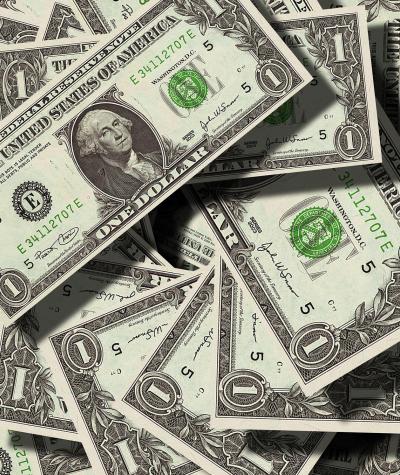In the first week of September, Sarah Palin – potential 2012 candidate -- took to the stump in Iowa to launch her latest attack on President Barack Obama and the Washington political establishment. But in addition to those predictable themes, the speech offered some telling insights.
That Palin used populist rhetoric to gin up Tea Party supporters is no surprise given her profile as a plain-speaking politician.
But this Iowa speech ventured even deeper into the populist critique of Washington and resulted in a full-throated polemic against the Washington culture and especially about special interests.
In the end her speech made clear that the Tea Party movement shares much common ground with organizations like the Campaign Legal Center. This has been clear since the emergence of the movement and remains true of those branches of the Tea Party that have not been coopted by special interests and Washington insiders in ten gallon hats.
Palin’s indictment of the “permanent political class” dominates the Iowa speech. The indictment of the Wall Street bailout – generally unpopular with Tea Party types – is more fully fleshed out into a critique of corporate crony capitalism and a reward to campaign contributors. She says, “[T]his is the capitalism of connections and government bailouts and handouts, of waste and influence peddling and corporate welfare. This is the crony capitalism that destroyed Europe’s economies. It’s the collusion of big government and big business and big finance to the detriment of all the rest – to the little guys.”
She continues this theme by comparing it to her willingness to take on the “same good old boy politics-as-usual that I fought and we defeated in my home state. I took on a corrupt and compromised political class and their backroom dealings with Big Oil. And I can tell you from experience that sudden and relentless reform never sits well with entrenched interests and power-brokers.”
Palin indicts President Obama, saying his “big campaign donors got nice returns for their “investments” in him to the tune of billions of your tax dollars in the form of ‘green energy’ stimulus funds. The technical term for this is ‘pay-to-play.’”
She then indicts the system as a whole noting that “some GOP candidates also raised mammoth amounts of cash, and we need to ask them, too: What, if anything, do their donors expect in return for their ’investments’? We need to know this because our country can’t afford more trillion-dollar “thank you” notes to campaign backers. It is an important question, and it cuts to the heart of our problem.”
She goes on to say, “And I speak from experience in confronting the corruption and the crony capitalism since starting out in public office 20 years ago. I’ve been out-spent in my campaigns two to one, three to one, five to one. (And, by the way, I don’t play that game either of hiring expert political advisors just so they’ll say something nice about me on TV – if you ever wonder. You know how that game’s played too I’m sure.) But the reason is simple: It’s because like you, I’m not for sale. It’s because we believe in the free market. I believe in the free market, and that is why I detest crony capitalism. And Barack Obama has shown us cronyism on steroids. It will lead to our downfall if we don’t stop it now. It’s a root that grows our economic problems. Our unsustainable debt and our high unemployment numbers and a housing market that’s in the tank and a stagnant economy – these are all symptoms. Politicians are so focused on the symptoms and not the disease. We will not solve our economic problems until we confront the cronyism of our President and our permanent political class.”
Now it is probably a good bet that Palin’s indictment of the current campaign finance system will not lead her to go to the head of the parade in favor of public financing – though it could be argued that such a system is the only way to get candidates away from their addiction to special-interest money. Is it fair to assume that the Tea Party would see public financing as yet another example of too much government?
But if so, then what is the answer? What is the solution to getting congressional and Presidential candidates to break their addiction to the “mammoth amounts of cash” they need to raise under the current system to be a viable candidate?
It would be wildly inconsistent for candidates like Palin who are criticizing the current campaign finance system from a populist viewpoint to support the outcome of the Citizens United case which unleashed corporate and union treasury funds on our elections. That decision has only further empowered the “big business” and “big finance” corporate interests she decries, and is daily distorting the free market flow of political ideas and candidates.
It will be fascinating to see if, in her next speech, almost-candidate Palin outlines her answer to changing a campaign finance system which does indeed create the corporate crony capitalism she laments.But even if she does not offer a plan, she has given voice to the common beliefs between the Tea Party and the reform community. Indeed these might seem strange bedfellows, but it often takes strange bedfellows to get things done in Washington, especially when it comes to reforming the pay-to-play system that prevails in the nation’s capital.
